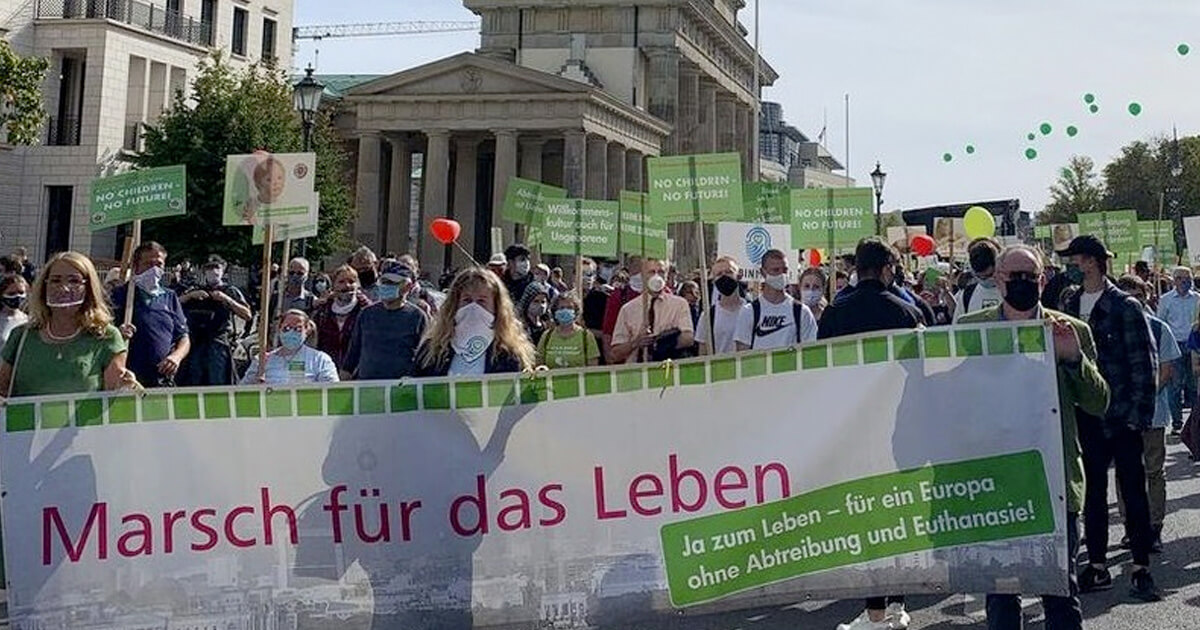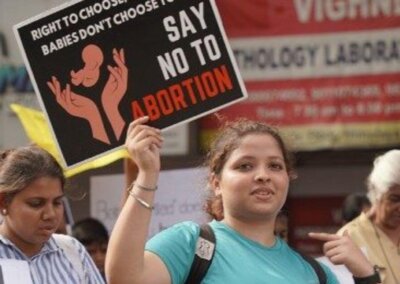Thousands of people from across Germany participated in the annual Berlin March for Life on Saturday, with many more following the events live stream.
Despite the coronavirus, over 3,000 people were permitted to gather in Berlin to call on the country’s politicians to “[protect] the right to life of every person from conception to natural death”.
People carried signs, provided by event organisers Bundesverband Lebensrecht eV [Federal Association of the Law of Life], reading “every person is unique” and “We love life!”.
The former Vice President of Germany’s federal parliament, Johannes Singhammer, thanked all participants in the march “for standing up for the right to life of all people so publicly and visibly”.
Several counter-demonstrations also took place at the same time as the Berlin March for Life.
In addition, unannounced rallies, involving topless abortion activists, attempted to disrupt the family-friendly pro-life event at Berlin’s iconic Brandenburg Gate, but they were prevented by police.
Record attendances at pro-life marches before coronavirus
Due to COVID-19, the organisers of annual pro-life marches have had to amend how they run their events, with many running hybrid events with online and in-person audiences.
Earlier this year, more than 40,000 people streamed Ireland’s Rally for Life in addition to 34 local and socially-distanced rallies taking place across the country before the livestream.
Before many parts of the world went into ‘lockdown’ or put safeguards on large events, pro-life demonstrations were seeing record attendance numbers, including in Berlin.
Already this year, a record-breaking 9,000 people attended the March for Life in Chicago, Illinois. A significant proportion of Gibraltar’s population gathered in February to encourage people to vote against introducing abortion to the region in a now postponed referendum.
Last year, the Berlin March for Life was attended by over 8000 participants – a significant increase on the approximately 5,300 people who attended the 2018 demonstration.
Additionally, over 50,000 Slovakians called on the country’s leaders to protect unborn babies. Pro-life demonstrations in Northern Ireland attracted over 20,000 participants, over 11,000 marched for life in the Netherlands, over 5,000 people marched for life in the UK, and over 2,000 people attended New Zealand’s March for Life.












